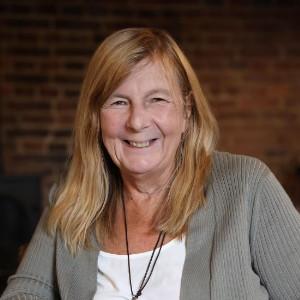Burnout beware; it’s an alarming problem but big business.
Burnout. It is a word used by many, understood by few. It only became an officially classified disease in 2019, though many people can identify with its symptoms from before that. What sets it aside from other illnesses is that it is specifically an occupational phenomenon, and one now, more than ever, entrepreneurs need to be aware of.
Emma Thomson started her business, Gemz By Ems, when she was still working full time. She would come back from her day job at 4 pm and then work on her new business will one or two in the morning. Emma would find herself so fatigued that she would simply fall asleep the moment she got home, especially in the afternoons. She had brain fog which affected her concentration. She would know what she needed to do but would be unable to work out how to do it. She developed acne, her hair became thin and lanky, and she was thirsty all the time. Her whole body ached, and yet at night, she couldn’t sleep. Initially, Emma consulted a functional medicine doctor, a systems and biology-based method focusing on identifying and addressing root causes of illnesses. Following her blood results which showed “ridiculously high cortisol levels,” Emma was told she had burnout and severe stress. Her National Health doctor confirmed the diagnosis and advised rest, offering sleeping pills and anti-depressants. Instead, she opted for herbal treatment, a change of diet, and gentle exercise. She found little support and mostly learned what to do from Google. At last, recognizing she couldn’t do everything, she went part-time and prioritized sleep. It was a year and a half before Emma felt wholly healed. She knows that significant stress, grief, or bad news will still make her unwell again, but she can quickly recognize the systems. By increasing her turnaround times, Emma still succeeded in building up her own business successfully.
Neil Long is a radio presenter, DJ, speaker, trainer. For years, he had been working seven days a week, ridiculous hours, and getting through it in a hypnotic trance because that is what society expected. Combined with his inner perfectionism, attempting to do everything immediately and perfectly, it was a toxic mix. He was pushing himself harder to keep going, do what he felt he “should,” following the loss of his dad, and his relationship with his mother had becoming strained. One day, doing some simple audio editing, he found he was simply staring into space and incapable of doing it. He now recognizes symptoms, the compassion fatigue, the dead eyes, the inability to do a simple task, snapping at those around him, and what he describes as “feeling my body was screaming. The doctors diagnosed burnout, and he took two months off work, but Neil says they were a respite rather than a solution, as he was plagued by feeling he should keep going. He tried things like mindfulness, but initially, it was just too hard to learn new things. Like Emma, Neil did a lot of research to help himself. Despite losing his Mum in lockdown, and DJ’ing not being allowed, Neil did volunteer work which he says helped. He solved necessary legal hurdles to set up virtual disco in his backroom, an early pioneer of remote parties bringing help to many others. Neil describes himself as “much better” and is now determined to help get the message out there that “it is ok, not to be ok,” and beat the toxic belief we have to overwork to justify ourselves.
Since burnout has become recognized as a disease, a plethora of businesses have opened up in the prevention or help space. I asked Dr. Nicola Harker, Coach and Mentor, and ex-GP who has suffered from burnout, and even as a GP, found little information available to help. She recommends checking qualifications carefully when seeking help. She advises seeking coaches and therapists need to be registered and qualified, either by ICF (International Coaching Federation) or by the recognized body of therapists. Dr Harper explains that the ICD-11 classification is specifically occupational and characterized by exhaustion and energy depletion, reduced professional efficacy, increased mental distancing from one’s job, or feelings of negativism or cynicism related to the job, paid or otherwise. People feel that they would be fine without the work, but the moment they return there, so do the symptoms. Sufferers often take their work home, do not take holidays, have trouble sleeping, and no longer socialize or exercise. Feeling undervalued is also a significant factor. Successful treatment includes working only standard hours, taking rest breaks, eating regularly, and having clear work boundaries.
Many people feel they have no choice but to return to their work. While they recognize they only suffer from the condition because of the work, they cannot see how to make adjustments or find a way out. Dr Harker says that the pandemic will have caused a burst of adrenaline-fuelled activity for some entrepreneurs, such as chefs switching to delivery services. That, in turn, will have resulted in a rise in stress and often even longer working hours. People who have been forced to make those adjustments may need to review them to see if they are now sustainable to avoid falling ill with burnout.
(photo credit please www.StillsByHernan.com via Unsplash)
“
Share via:


















































